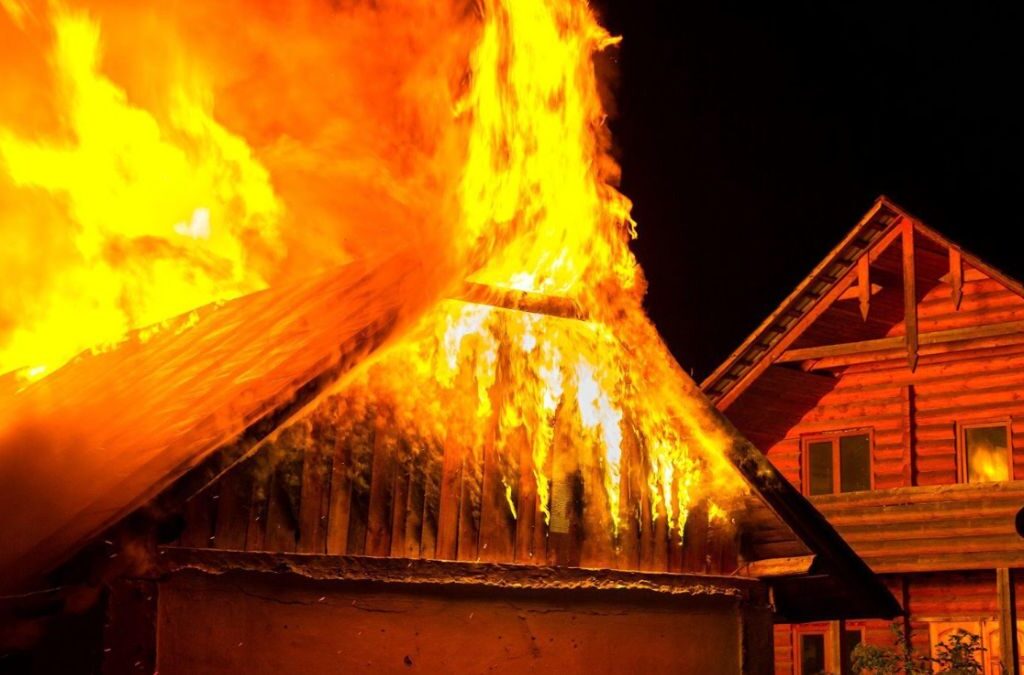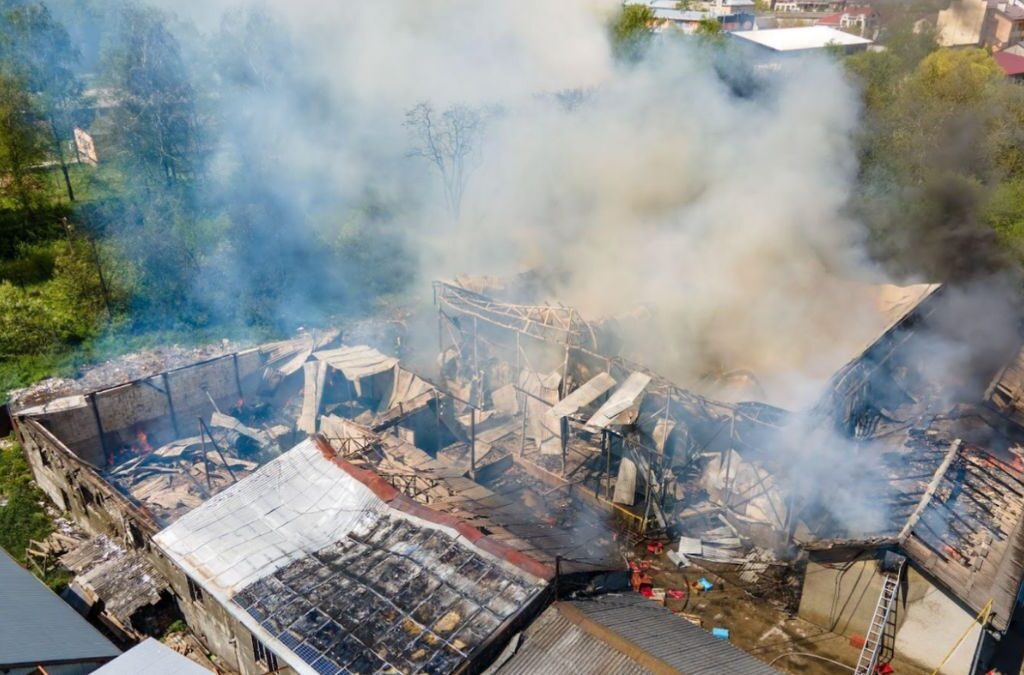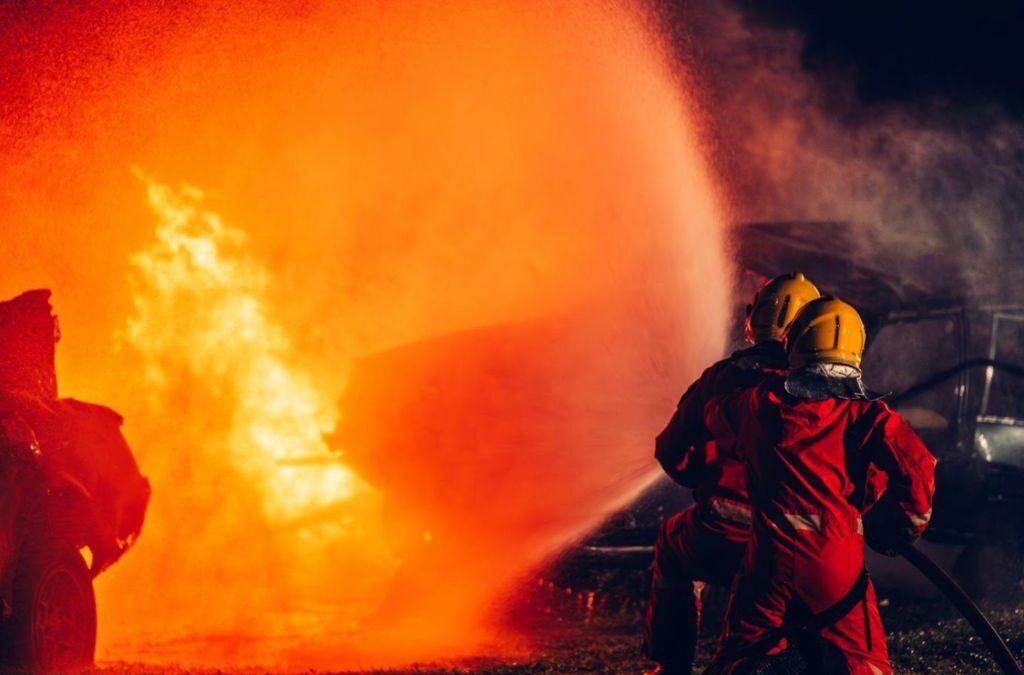You may be unaware that arson crime offenses are classified into several degrees based on the gravity of the incident. First-degree arson is defined as willfully setting fire to a building where persons are present, whereas second-degree arson is defined as setting fire to an uninhabited facility. Third-degree arson is typically for burning personal property.

Call David E. Stanley, APLC, at (225) 926-0200 Today
Understanding the Different Degrees of Arson Crime
Table of Contents
ToggleFirst-Degree Arson
First-degree arson is the deliberate setting of fire to a property to inflict hurt or destruction. It is the most severe arson crime, often associated with premeditation and significant damage. If convicted of first-degree arson, you may face harsh punishments, such as lengthy jail terms and hefty fines.
To be charged with first-degree arson, the prosecution must prove that you intentionally started a fire to cause harm or destruction to a building or other property. This could include setting fire to a home, business, or other structures. The critical element in first-degree arson is the intent to harm or destroy, making it a grave offense in the eyes of the law.
The consequences of a first-degree arson conviction can be life-altering. Not only could you face a substantial amount of time behind bars, but the mark on your criminal record may impact various aspects of your life, including future employment opportunities. Furthermore, the victims of such a crime might suffer significant emotional and financial consequences.
Second-Degree Arson
In contrast to the gravity of first-degree arson, second-degree arson entails purposefully setting fire to a property with different intent and repercussions. Second-degree arson is typically defined as setting fire to a building or structure without the presence of people inside but where there’s still a significant risk of harm to individuals or firefighters. This degree of arson crime is often considered a serious offense, punishable by law.

Here are some key points to help you understand second-degree arson:
Intent
The perpetrator must intend to start a fire or cause an explosion. Various motives, such as vandalism, revenge, or insurance fraud, may drive this intent.
Risk of Harm
Due to fires’ uncontrolled nature, second-degree arson poses a substantial risk of harm to people, neighboring properties, and the environment.
Property Damage
Intentionally burning a property can result in extensive damage, leading to financial losses for property owners and insurance companies.
Legal Consequences
Perpetrators of second-degree arson face criminal charges, fines, and potential imprisonment based on the severity of the offense and state laws.
Third-Degree Arson
Third-degree arson involves a lower level of intent and risk than second-degree arson but still constitutes a serious criminal offense. This degree of arson crime typically consists of setting fire to a property or structure intending to cause damage, albeit with less recklessness or premeditation than in second-degree arson cases.
The critical characteristic of third-degree arson is the lack of substantial risk to human life. While the act still threatens property and may indirectly endanger individuals, it isn’t done with the explicit purpose of causing harm to others. This degree of arson crime is often associated with impulsive or negligent behavior rather than a deliberate attempt to injure or kill.
The penalties for third-degree arson vary based on the case’s jurisdiction and facts. Individuals convicted of third-degree arson may face significant fines, probation, community service, and potential incarceration. The severity of the punishment is usually influenced by factors such as the extent of the damage caused, any prior criminal record, and whether anyone was injured due to the arson.
It is crucial to understand that while third-degree arson is regarded as less dangerous than second-degree arson, it is still a serious crime with legal implications that can have a long-term influence on your life and prospects. If you face third-degree arson charges, you must get legal assistance to navigate the court system and have an attorney fight to preserve your rights.

Aggravated Arson
Aggravated arson is a criminal offense involving fire to property or structures with malicious intent. It is considered more severe due to specific circumstances that elevate the danger and potential harm caused by the act.
Here are some key points to help you understand aggravated arson:
Intent
In aggravated arson cases, there’s clear evidence that the individual deliberately and intentionally started the fire to cause harm or destruction.
Severity of Damage
Aggravated arson typically damages property and structures and potentially endangers lives, leading to severe consequences.
Presence of People
This form of arson crime often occurs when there are individuals present within the targeted property or structure, putting lives at risk and increasing the gravity of the offense.
Use of Explosives or Accelerants
Aggravated arson may involve using explosives or accelerants to intensify the fire, making it more challenging to control and causing more significant destruction.
Understanding the distinct characteristics of aggravated arson is crucial in recognizing the severity of this criminal offense and its potential dangers to individuals and communities.
Reckless Burning
Reckless burning involves setting fires without regard for the potential harm or consequences resulting from their spread. This behavior differs from intentional arson crime because the individual doesn’t intend to cause damage but demonstrates a reckless disregard for the potential outcomes of starting a fire.
In cases of reckless burning, the individual’s actions are considered negligent, as they fail to exercise the necessary caution and care required when dealing with fire. This negligence can lead to significant property damage, injuries, or even loss of life. For example, someone who carelessly discards a cigarette in a dry forested area during a high fire risk could be charged with reckless burning if a wildfire ignites.
Penalties for reckless burning may vary depending on the jurisdiction and the extent of the fire damage. If the fire is small and quickly contained, reckless burning may result in a misdemeanor charge. However, if the fire spreads extensively, resulting in significant destruction or harm, the individual could face felony charges and more severe consequences.
Handling fire carefully is crucial. This helps prevent accidental fires and works to safeguard people’s lives and property from the dangers of reckless burning.
Frequently Asked Questions
- Can a Person Be Charged With Multiple Degrees of Arson for the Same Incident?
Yes, a person can be charged with multiple degrees of arson for the same incident. The exact charges will vary based on the severity of the offense and the context in which it occurred.
- How Does the Severity of the Damage Caused by the Fire Affect the Degree of Arson Charged?
The severity of the damage caused by the fire affects the degree of the arson charge. Factors like endangering lives or property value influence the severity—the more extensive the destruction, the higher the potential degree of arson crime.
- Are There Specific Circumstances That Could Elevate a Charge of Reckless Burning to Aggravated Arson?
Yes, there are specific circumstances that could elevate a charge of reckless burning to aggravated arson. If you set fire to a building with intent to harm or know someone is inside, your charge may escalate from reckless burning to aggravated arson. Serious injuries, endangerment, or other factors can elevate the offense.
- Can a Person Be Charged With Arson if They Did Not Intend to Start a Fire but Their Actions Led to One?
Yes, a person could still be charged with arson even if they didn’t mean to start a fire, but their actions caused one. The key is that the fire resulted from their actions, regardless of intent.
- How Do Prosecutors Determine the Appropriate Degree of Arson to Charge Someone With?
Prosecutors determine the appropriate degree of arson to charge someone with based on factors like intent, damage caused, and endangerment. The person’s actions and circumstances will be crucial factors in the decision-making process.
Arson Criminal Defense Attorney in Baton Rouge, LA

Arson crime is classified by degree, depending on the gravity of the crime committed. Each degree carries different penalties depending on the circumstances. David E. Stanley, APLC, is an Arson Criminal Defense Attorney in Baton Rouge, LA, who can assist and guide you through the legal process. He provides a defense strategy that can make a difference in the result of your case.
Looking for an Arson Law Attorney? Call David E. Stanley, APLC, at (225) 926-0200 Today
David E. Stanley, APLC
1055 Laurel Street, Suite 2 Baton Rouge, LA 70802
(225) 926-0200

David Stanley is the founder and principal of David E. Stanley APLC. Since 1983, Mr. Stanley has successfully practiced law from his office in Baton Rouge, Louisiana.



Add a Comment
You must be logged in to post a comment